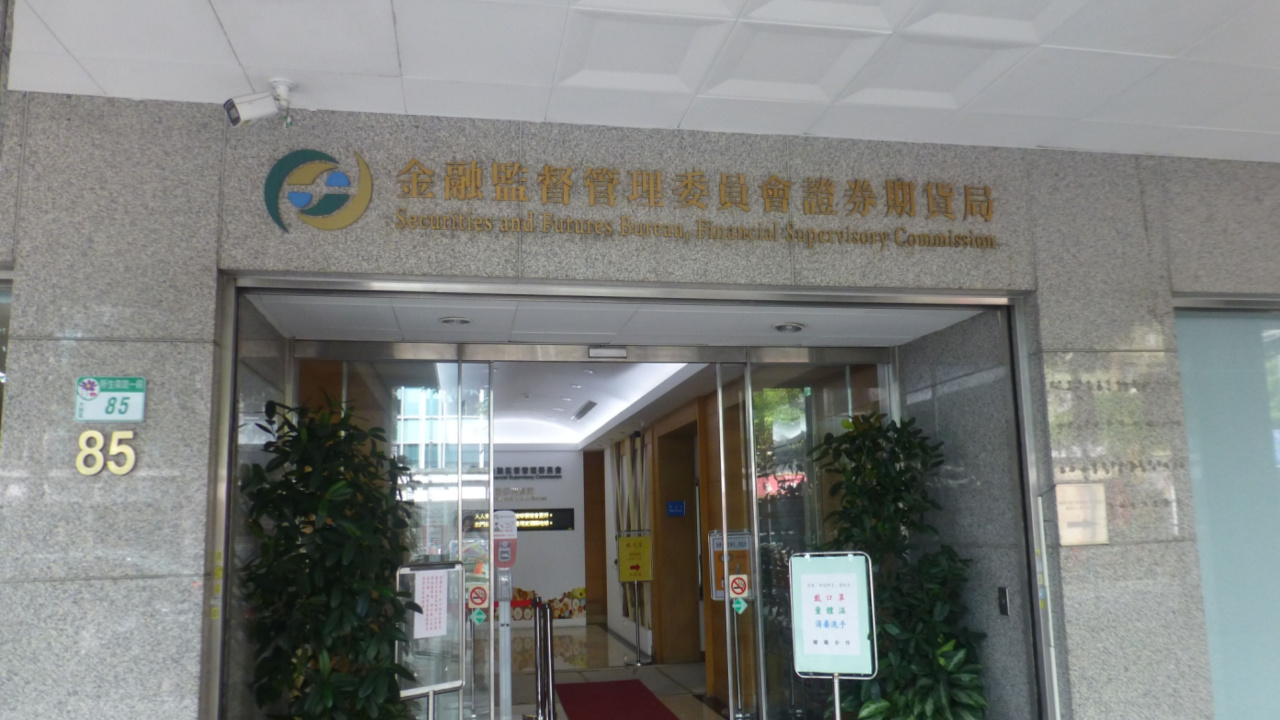
Regulators in Taiwan are reportedly planning a trial run of crypto custody services in local banks next year. According to a new report by the Central News Agency (CNA), a media outlet backed by the government of Singapore, Taiwan’s Financial Supervisory Commission (FSC) is planning on letting banks trial digital asset custody services starting Q1 […]
The post Taiwan Regulators Plan Crypto Custody Trial Next Year With Local Banks: Report appeared first on The Daily Hodl.

Taiwan’s second-largest telecom has found a way into the crypto market, bring resources and experience with it.
Taiwan Mobile, the country’s second-largest telecommunications provider, has received a virtual asset service provider (VASP) license from the country’s Financial Supervisory Commission (FSC), according to local reports. The license creates a path for it to open a cryptocurrency exchange.
Taiwan Mobile, which is called Taiwan Big Brother in Chinese, is the 26th company to be licensed as a VASP. It has been eyeing a place in the crypto market for over a year, according to Bloomberg, which speculated that Taiwan Mobile was seeking to buy an existing exchange. It was licensed under the name of Fusheng Digital, which Taiwan Mobile owns. Both companies are headed by Lin Zhichen.
To receive the VASP license, Taiwan Mobile had to conform to several Anti-Money Laundering (AML) requirements. Once those hurdles are cleared, the company is eligible for membership in the self-regulatory Taiwan Virtual Asset Service Provider Association, which was founded in June.

Unlike their U.S. counterparts, Korea’s FSC and FSS have been cautious about allowing crypto trading on traditional securities markets.
Korean regulators are under mounting pressure to approve cryptocurrency exchange-traded funds (ETFs) following the recent approval of spot Ethereum ETFs by the United States Securities and Exchange Commission (SEC).
According to local media, the SEC’s decision regarding Ethereum is expected to exert pressure on Seoul’s financial regulators to reconsider their stance on digital assets.
The SEC greenlighted the creation of ETFs for Ethereum, the world’s second-largest cryptocurrency, on May 24, 2024, following its earlier approval of Bitcoin ETFs in January 2024.
 The government of Taiwan has acknowledged the cooperation Binance has offered to domestic law enforcement agencies. According to local reports, Binance is the only offshore exchange that assists the government in dealing with virtual asset fraud cases, allowing authorities to access the accounts involved in these actions and deposit the assets derived from these schemes. […]
The government of Taiwan has acknowledged the cooperation Binance has offered to domestic law enforcement agencies. According to local reports, Binance is the only offshore exchange that assists the government in dealing with virtual asset fraud cases, allowing authorities to access the accounts involved in these actions and deposit the assets derived from these schemes. […]
The South Korean central bank will be able to access crypto transaction data from exchanges operating in the country.
The central bank of South Korea has been given the green light to ramp up its scrutiny of cryptocurrency service operators and issuers amid further discussions on virtual asset legislation in the country.
On April 20, local media outlet The Korea Herald reported the Bank of Korea (BoK) will be given the right to investigate operators of cryptocurrency-related businesses.
The South Korean central bank has been competing with the country’s financial regulator, the Financial Services Commission (FSC), over crypto jurisdiction. However, the FSC will have the final say in governing the regulation of the digital asset sector.
The Bank of Korea expressed concerns over financial stability risks from stablecoins and will now be able to request transaction data from crypto exchanges.
The BoK’s right to request data from digital currency operators was confirmed by an official from the National Assembly’s Political Affairs Committee last week. The FSC will express its official position at a subcommittee meeting on April 25.
The meeting will accelerate the rollout of South Korea’s virtual asset laws, according to the report.
Democratic Party lawmaker Kim Han-gyu, who proposed the country’s crypto regulations, the Crypto Assets Act, said “The Financial Services Commission admits that it is necessary for the Bank of Korea to have the right to request data, but it is refusing to include it in the bill.”
The South Korean government has been trying to push forward crypto legislation but there have been arguments between the central bank and the FSC over who should control it.
However, the FSC warned that if the central bank governs crypto it will send the message that digital assets have the same standing as traditional finance. The FSC chair has previously said that he does not consider crypto a financial asset.
The two institutions have been at loggerheads for the past three years over crypto regulations. The FSC has been accused by officials from the Political Affairs Committee, a division of the country’s State Affairs Commission, of trying to monopolize its position as a crypto regulator.
The latest development means that both the South Korean central bank and its financial regulator will be able to investigate crypto operators and have full access to transaction data.
Related: South Korea saw over $4B unregistered crypto transactions in 2022
The FSC has been active recently with enforcement actions against crypto companies and takes the same position as the United States Securities and Exchange Commission (SEC) in that it considers crypto assets securities.
South Korea’s Financial Supervisory Service, which operates under the FSC, announced an investigative body called the Digital Assets Committee in mid-2022.
Asia Express: 3AC cooks up a storm, Bitcoin miner surges 360%, Bruce Lee NFTs dive
 The South Korean financial intelligence unit is taking action against 16 foreign cryptocurrency exchanges for operating illegally in the country. “For illegal business activities of unregistered entities, maximum of 5 years of imprisonment or up to KRW 50 million of fines can be imposed,” the regulator said. 16 Foreign Crypto Exchanges Flagged by South Korean […]
The South Korean financial intelligence unit is taking action against 16 foreign cryptocurrency exchanges for operating illegally in the country. “For illegal business activities of unregistered entities, maximum of 5 years of imprisonment or up to KRW 50 million of fines can be imposed,” the regulator said. 16 Foreign Crypto Exchanges Flagged by South Korean […] The financial regulator of Taiwan has asked local banks not to allow the use of cards for payments in transactions involving cryptocurrencies, local media revealed. The authority says these assets are risky while associated cash flows are hard to monitor. Taiwanese Regulator Urges Banks Not to Allow Crypto-Related Payments With Bank Cards Taiwan’s Financial Supervisory […]
The financial regulator of Taiwan has asked local banks not to allow the use of cards for payments in transactions involving cryptocurrencies, local media revealed. The authority says these assets are risky while associated cash flows are hard to monitor. Taiwanese Regulator Urges Banks Not to Allow Crypto-Related Payments With Bank Cards Taiwan’s Financial Supervisory […]
Regulators in South Korea have issued a new report that offers a bevy of recommendations for how to properly govern the country’s crypto industry.
A report commissioned by South Korea’s federal government recommends the domestic crypto industry adopt a licensing system for exchanges and token issuers as a way of protecting investors.
The report issued by the Financial Services Commission (FSC) to the National Assembly, the country’s legislature, also calls for new regulations to mitigate insider trading, pump-and-dump schemes and wash trading.
The new regulations would be stricter, and the penalties for failure to comply would be harsher than those in the Capital Markets Act that the domestic crypto industry currently abides by.
“The Comparative Analysis of the Virtual Property Industry Act” report obtained exclusively by Korea Economic Daily on Tuesday reveals a recommendation to establish a licensing system that would apply to coin issuers such as companies that operate initial coin offerings (ICO) and crypto exchanges. Varying degrees of licenses would be issued based on the risk involved.
Regulating coin issuers through a robust licensing system is considered to be the “most urgently needed protection” in the market today. That position may be underscored by the untimely market crash sparked by the fall of the Terra project, whose South Korean founder Do Kwon may find himself called before the National Assembly to explain what happened.
One recommended regulation would force coin issuers to submit a white paper to the FSC about their project that includes details about the company’s officers, how it plans to use funds raised through an ICO and what risks are associated with the project. Updates to the white paper would have to be submitted at least seven days before proposed changes could take effect.
Even companies with headquarters abroad that want their tokens traded on Korean exchanges would be required to adhere to the white paper rule.
It is likely that the FSC had stablecoins on their agenda well before problems arose last week for TerraUSD (UST), Dei (DEI) and Tether (USDT). However, there are recommendations to put requirements on stablecoin issuer asset management that would apply to how they use collateral and how many coins an issuer can mint.
The report also aims to curb shady trading activity which local exchanges and coin issuers have been accused of for years. It suggested regulations on insider trading, price manipulation, pump-and-dump schemes, wash trading and industry-standard transaction fees.
Cointelegraph reported in April that an industry insider speaking to local media acknowledged that provisions in the Capital Markets Act may not be adequate to properly govern the crypto industry.
Related: Leaked report: South Korea to establish crypto framework by 2024
South Korea’s new President, Yoon Seok-yeol, was elected in part due to his eagerness to understand the crypto industry. On May 3, he declared that his regime would push through a bill that extends the tax-exempt status of crypto investment gains until a proper legal framework is in place.
The report revealed today could be the beginning of the framework President Yoon had in mind for the crypto industry.

The country’s president elect is proving his crypto savvy by declaring there will be no tax on crypto investment gains until legislation can ensure consumer protections.
South Korea’s newly-elected president Yoon Seok-yeol announced Tuesday he would push to defer taxation on crypto investment gains at least until a new set of regulations called the Digital Asset Basic Act is enacted.
South Korea’s crypto tax was initially set to come into effect for the 2022 fiscal year, but was pushed back to 2023 last December. E-daily reported that Yoon will ensure the crypto tax law does not come into effect until a reasonable legislation is in place to protect consumers, which could be by 2024.
The president-elect’s presidential transition team has been exploring its options in delaying the tax since March, when Yoon won the election, on the grounds that there was insufficient legislation in place to justify levying taxes on digital assets.
DABA was conceived of by the Financial Services Commission (FSC) this year and entails a series of laws related to consumer protections. The act pertains to token issuances, nonfungible tokens (NFT), centralized exchange (CEX) listings, international finance as it relates to crypto, and includes a response to US President Joe Biden’s executive order on crypto.
Through DABA, the FSC plans on introducing a crypto insurance system as a backstop measure against hacks, system errors, and unauthorized transactions.
The controversial crypto tax legislation that's been delayed yet again would levy a 20% tax on crypto investment gains above about $2,100 per year.
An FSC representative told E-daily on Tuesday that “taxation of investment income from virtual assets should be done after investor protections are in place.”
South Korean crypto venture capital firm Hashed CEO Simon Kim agreed, telling Cointelegraph today that “it doesn’t make sense to impose a tax on cryptocurrency before enacting relevant statutes, which clearly state cryptocurrency-related businesses’ scope and are a prerequisite for taxation.”
“Without profound research on the industry and robust implementation strategies, promoting taxation on cryptocurrency can cause a variety of accidents and raise some serious issues in taxation equity because an investor protection system for cryptocurrency has yet to be implemented.”
Related: Upbit owner Dunamu could see 'monopoly' curbed after investment controversy
While the FSC works to draft new bills as part of DABA, Yoon plans to establish the Digital Industry Promotion Agency to serve as the reference point for regulatory issues in the crypto industry.
 Cryptocurrency exchanges in South Korea have until midnight on Friday to register with financial authorities in order to continue operating legally. Only 10 digital asset trading platforms have already submitted their documents to the Korean anti-money laundering body. Compliance Deadline for New Korean Crypto Regulations Expires Friday Registering with Korea’s Financial Intelligence Unit (FIU) is […]
Cryptocurrency exchanges in South Korea have until midnight on Friday to register with financial authorities in order to continue operating legally. Only 10 digital asset trading platforms have already submitted their documents to the Korean anti-money laundering body. Compliance Deadline for New Korean Crypto Regulations Expires Friday Registering with Korea’s Financial Intelligence Unit (FIU) is […]